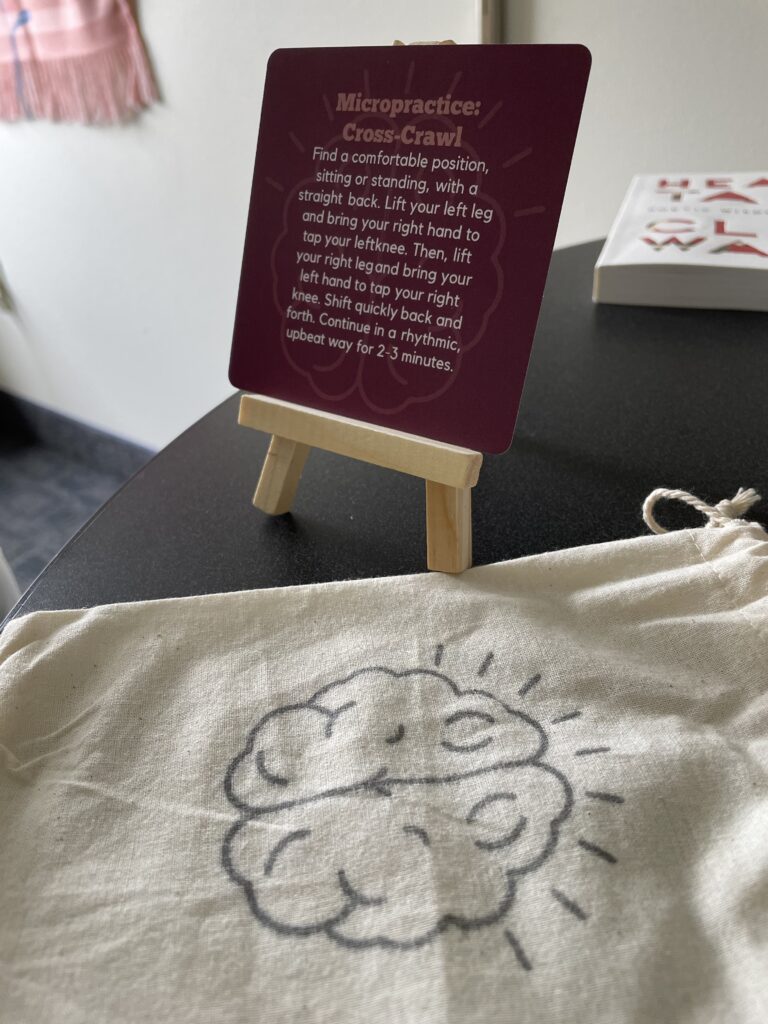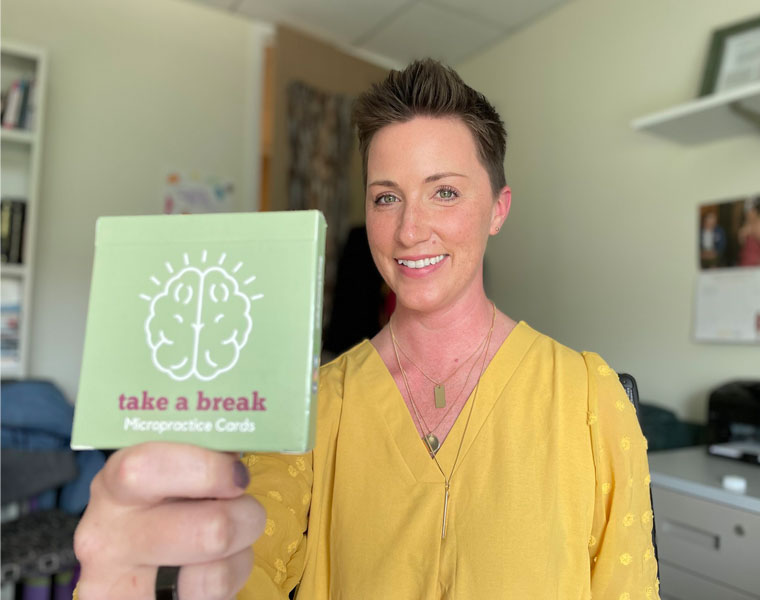In the midst of the global COVID-19 pandemic, it became abundantly clear to Jennifer King that most people didn’t have the basic knowledge to help them mentally cope with the related stress.
“I realized that what I know and understand about trauma, stress and healing was super relevant to all of us,” said King, an assistant professor and co-director of the Center on Trauma and Adversity at the Jack, Joseph and Morton Mandel School of Applied Social Sciences at Case Western Reserve University.
King, who has a wide range of experiences working clinically with children, adolescents, families and adults, began to craft what would become the “Take A Break” micropractice deck, a pocket-size deck of 28 cards—based on the brain science of stress and healing—to soothe, settle, or energize the body and mind.

King sold more than 100 of the $30 decks before they officially went on sale online.
“Nothing is normal and none of us are okay,” she said. “Now, more than ever, we need all the tools available to us to care for our mental health—and we need to do so in ways that don’t require tons of time and resources.”
In the first year of the COVID-19 pandemic, the prevalence of anxiety and depression increased 25% globally, according to the World Health Organization (WHO).
WHO cited “the unprecedented stress caused by the social isolation resulting from the pandemic. Linked to this were constraints on people’s ability to work, seek support from loved ones and engage in their communities,” among other reasons for this increase.
The deck offers 28 easy-to-use “micropractices,” one- to three-minute exercises that employ proven approaches for soothing the stress response and regulating the nervous system. King said that micro-practices “tap into the innate wisdom of the body and mind and do not require any additional equipment.”

One such exercise encourages the user to take a “jellyfish breath,” easing into a comfortable position and keeping an image of a jellyfish in mind “as you allow your breath to flow into your chest, ribs, belly and back” while placing your hands on any a body part as it rises and falls.
“Micropractices are about using the power of patterned, repetitive, rhythmic movement, bilateral stimulation, self-massage and mindfulness in small doses throughout the day,” King said, adding that these exercises can help to build a more resilient stress-response system.
“I use these to start and finish my classes,” she said. “My students want these strategies not only for their own self-care but to share with their clients.”
King, who designed Take A Break deck and its packaging, said the cards can be used anywhere—from the classroom to work or home—with others or alone.
“It’s about being mindful of the points in the day where you’re feeling stressed,” she said, “noticing where the spikes are and building in activity around those spikes.”
For more information, visit DrJennyKing.com.
For more information, contact Colin McEwen at colin.mcewen@case.edu.
This article was originally published June 15, 2022.


